
Brian Molko, a look at the icon
Brian Molko is an icon, there’s no other way to put it. From Placebo’s debut self-titled album in 1996 all the way to their 2022 album Never Let Me Go, Brian Molko has been at the forefront of alternative music, developing the genre and causing his fair share of controversy.
But let’s look at the frontman’s life and his impact on alternative rock.
Brian molko's Background

Brian Molko was born on the 10th of December 1972, which makes him 50 at the time of writing. He was born in Belgium to a Scottish Mother and an American-Jewish Father. Molko moved around a lot when he was growing up due to his Father’s work as a banker. Molko lived in places such as Scotland, and Lebanon, before eventually settling in Luxembourg.
The Placebo frontman, however, cites that Dundee in Scotland is “Where I grew up”. Dundee was his mother’s hometown (coincidentally it is mine too) and Molko has since stated that even now he sees it as his hometown.
Whilst growing up Molko was a Christian, as it was his mother’s faith. His household was strict and certainly wasn’t keen on artistic expression. It’s safe to say that it probably made Molko rebel more.
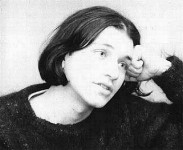
Placebo begin to meet
Brian’s first encounter with Stefan Olsdal was at high school where they both attended the American School in Luxembourg. However, they weren’t friends at the time as Molko had already set himself as an outsider.
Molko would then attend Goldsmiths in London studying Drama. As fate would have it he would Bump into Stefan on his way home and invite him to one of his gigs, well, more force in his own words. The rest is history.
Brian Molko in the 90s - The beginning of placebo
As we have mentioned, at the start of the 90s Brian Molko was studying in London, but he was also busy starting his music journey and crafting his unique identity. During the early 90s, he was playing the occasional gig with future Placebo drummer Steven Hewitt.
Steven had met Brian outside of a Burger King of all places, thanks to a mutual friend. As you can tell a lot of Placebo’s formation was down to chance.
Stefan would be mesmerised by the unique vocal style and performance of Molko and knew they had to start a band. This all happened in 1994. Placebo would initially start out with a different drummer, but due to tensions in the band, Steve Hewitt resumed his position.
Most tensions were centred on the fact that Molko was taking too much attention on stage with his flamboyant presence.
Placebo's Self titled debut (1996)
Placebo released their first album in 1996, and it would achieve incredible success peaking at number 5 on the UK albums chart. While of course, this was down to the whole band a lot of the success arose due to the unique androgynous style of Brian Molko.
Just to preface this section, Brian Molko is openly bisexual and a lot of Placebo’s lyrics, and attitudes, focus on sexuality and the LGBTQ+ community. This is something that was to be pivotal to the band’s early success.
At the time in the 90s alternative rock had become more “Macho” than ever. Brian was always the rebel, the one to go against the grain, change attitudes, and was never afraid to be outspoken. This is why he is celebrated as an icon.
Brian established a style of ambiguity and wanted the audience to sit and wonder if were they watching a man or a woman perform. Molko is not a very big man, and his singing voice is naturally falsetto, so with this, his soft features, and his application of make-up his gender was now disguised to the listener.
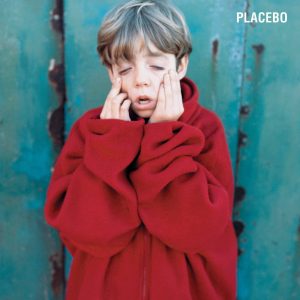
Placebo rise with attitude
Their debut track “Come Home” was released on the 5th of February, before the Album’s full release in June. The track that garnered a lot of attention however was their song “Nancy Boy”.
The song was released as a single in 1997vand it was provocative and controversial challenging traditional gender roles and sexuality. With its catchy melody and Molko’s androgynous vocals, the song quickly became a hit.
The track was a comment on Britpop band Suede, whose singer claimed to be a bisexual man without ever having had an experience, hence the lyrics “It all falls down at the first rehearsal”. See the full lyrics here.
Placebo were here and so was the personality of Brian Molko.
Without You I'm Nothing (1998)
Placebo had an insane schedule during this period. They toured the world, played music, took countless drugs and were shoved into the centre of British music culture. Then when it all came to an end, they had to sit down and write a sophomore album.
This album would be Without You I’m Nothing. It was recorded within 3 months and it was a more personal account of Molko’s life than their debut. “Pure Morning” is about a friendship, “You Don’t Care About Us” is about an ex-lover’s difficulty with relationships, and “Scared of Girls” is about being ashamed of who you are.
The struggles of being a rockstar
During this period of time, Molko and the band would form a close relationship with another outcast, David Bowie. Bowie was influential in both Molko’s development with Molko saying “There’s a lot of knowledge and a lot of wisdom to be gleaned from him”.
During this period, Molko’s recreational drug use had developed into an addiction, and despite at the time claiming he had never tried heroin, he later admitted he had used it during this period.
The world tour in support of Without You I’m Nothing was a huge success. The band played to sold-out crowds all over the world, and they even played at Glastonbury.
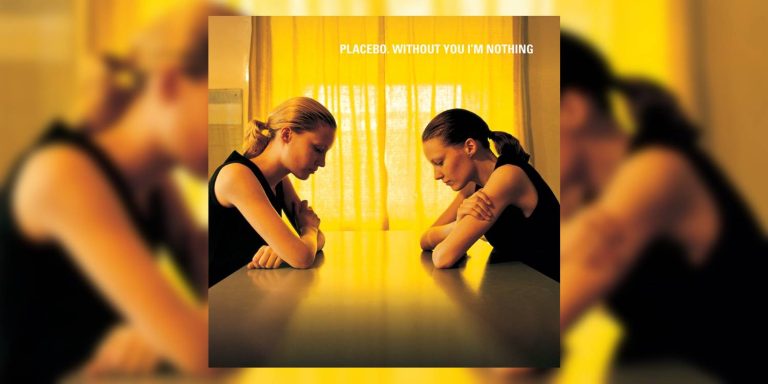
Brian Molko In The 00s - New heights, and Getting Clean
Placebo entered to 00s at the peak of their powers, but Molko was at his worst. He was suffering with his drug addiction and was dealing with a break-up from his long-term partner. As with a lot of creatives, this struggle and darkness came out in his music.
This music would be their third album, Black Market Music.
Black Market Music (2000)
Black Market Music was a more experimental album than those that had appeared before. It was angrier, rawer, but first and foremost it was honest. In his own words “Black Market Music is a very angry album” and it comes through.
“I was really trying to push myself as a musician and as a songwriter on Black Market Music” and expanded on it saying in an interview with NME “I wanted to experiment with different sounds and different styles, and I think that the album reflects that.” Songs such as “Spite and Malice” are standout cases for this, with a blend of alt-rock and rap.
This album is a big step for the development of both Molko’s songwriting and helped to establish a signature sound that the band would take forward. The album reached number 6 in the UK and became number 1 in France.
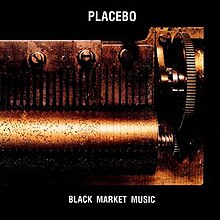
9 Months in the Studio
Black Market Music took Placebo nine months to record, this was due to the effect of the band’s struggles with drugs. Molko in an interview with Kerrang said “We were also really heavily medicated and beginning to get quite deep into drugs”.
This was the first album that their drug addiction had truly affected. It reduced their ability to be creative, instilled a sense of arrogance within all members of the band, and overall was making them indulge within themselves. Brian Molko discovered around this time that he had been dealing with depression, another factor that took a toll on the album.
This drug usage would rear its head again to hamper the band sooner rather than later.
Sleeping With Ghosts (2003)
Sleeping with Ghosts was released on the 23rd of March 2003. The album was a further development of the tone set by Black Market Music. The album deals with Molko’s relationships and reflects on the impression they left on him.
“The Bitter End” talks about the end of a relationship, while “Special Needs” deals with power struggles within them. This theme is carried throughout the album.
One thing that is apparent in this album is the experimentation with different genres. It calls upon more electronic elements, however, it is the most “indie” album yet.
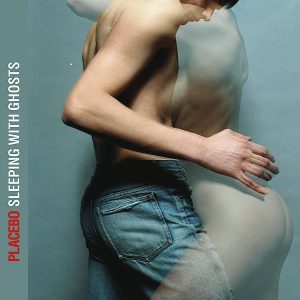
After the album
Placebo were still in the peak of their powers at this moment in time. They followed up the album with a set of covers which included “Running up That Hill” which garnered the attention of Kate Bush herself. She even endorsed the track because she enjoyed it so much.
After extensive touring, in 2003 and a bunch of headline shows, Brian Molko’s life greatly changed. In 2005 Molko had a Son, Cody Molko, with his ex-partner Helena Berg. This event changed Molko’s life, removing arrogance and self-indulgence and making him more aware of others.
“It has changed the lifestyle, but it doesn’t necessarily change what you write about,” Molko said in 2006. He was more responsible more refined, and had a greater duty of care. We were about to witness a new Brian Molko, but not quite yet.
Meds (2006)
With a fresh outlook on life, Molko began to look inwards. He saw his patterns of destruction aligning with previous casualties of the rock lifestyle such as Kurt Cobain and Jimi Hendrix. His drug addiction was at its worst, his mental health was at rock bottom and something had to be done.
The album itself was a stripped-back, more emotional album than others before it. The drugs were clouding their creativity with Molko saying, “We draped ourselves in the veil of denial, refusing to see that Placebo was not doing well”.
Molko called the recording of the album as an “orgy of drugs and abuse”. All of the tracks told stories of struggle, mental illness, and depression. Molko knew something had to change.
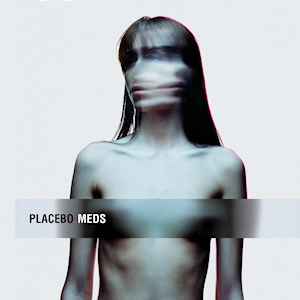
Cleaning up the act
“I always enjoyed drugs, but I started to realise that I wasn’t immortal, that I had to stop before it was too late” Molko (The Scotsman). It’s clear that Molko knew if things continued he would ultimately lose everything he had created. He got clean for his band, his son, and for himself.
Brian Molko got clean in 2006 after the release of Meds, checking into a clinic, although he was pushed out on tour four days after coming out. Despite this, Molko would manage to stay clean, although he admits he did struggle.
This life change would be the focus of the next album.
Battle for the Sun (2009)
Battle for The Sun is Placebo’s sixth studio album which was released in 2009. The album saw a complete u-turn in their attitude and the use of their lyrics. The songs went from the darkest they had ever been to the most optimistic.
The new songs told a story of choosing life, as opposed to the struggles of life. Even the title of the album is about stepping out into a new light. Molko had been clean for years and this was reflected in his music.
They decided to utilise more guitars in this album, evident in songs such as “The Never Ending Why” and “For What It’s Worth”. The album managed to reach number 2 in the UK albums chart, marking that even after a decade Molko and Placebo were still relevant.

Brian Molko in the 2010s - Music Maturity
Coming into the 2010s Brian Molko was busy on tour with Placebo, still riding the success of Battle for the Sun. The positive and clean Brain Molko would concentrate on being a father during this time, attempting to see his son Cody as often as possible.
Placebo were still a dominant alternative rock band during this era, headlining festivals, partaking in world tours, and most importantly releasing music. This includes the 2012 EP B3 which delivered brand new music alongside some rerecorded versions of other songs.
The EP would bridge the gap into their next album.
Loud Like Love (2013)
I know, I keep saying so, but once again Placebo’s sound became more mature here. Released on September 16, 2013, the album Loud Like Love takes on themes of love, human connection, and the complexities of modern relationships.
Songs like “Too Many Friends” talks about people being too interconnected and too bothered about social media and the internet. Molko keeps his signature vulnerable voicing but combines it with intricate guitar playing and another developed sense of musicianship.
The album as a result becomes an atmospheric alternative rock album. This is most evident in title track “Loud like Love” where they create an anthem of a song, dedicated to love. The album is bold, developed, and it emphasises the band’s growth.
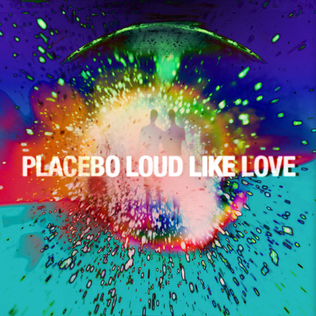
After the album
Placebo once again embarked on a tour to follow up on this album. Then when they got back, they took on the legendary MTV Unplugged where they played a lot of tracks that they hadn’t played in years.
The band had retired a bunch of their earlier tracks by this point in time. This was because Molko didn’t feel associated with them anymore. Molko was no longer the androgynous, controversial figure, he was now a distinguished musician searching to define his legacy.
In 2016 they set off on another tour. This was the 20 Years of Placebo tour. After this tour the band would enter a small hiatus, to focus on their personal lives.

Brian Molko Now - The Icon
Brian Molko and Placebo stayed away until 2021, when they announced their eighth studio album Never Let Me Go, due for release in 2022.
Never Let Me Go (2022)
The album was released to critical acclaim and it shares a lot of tonal similarities with that of Loud Like Love, although it contains more electronic elements.
It achieved strong chart performance, peaking at number 1 in the UK Indie Chart, number 1 in the Austrian, Dutch, and German album charts, and number 3 in the UK Albums Chart.
This record is darker than that of the previous two and once again shows a developed maturity once again.
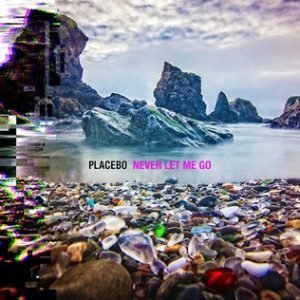
Brian Molko Now
Brian Molko undeniably holds an esteemed place as an icon in the realm of alternative rock and beyond. His haunting vocals, androgynous style, and fearless expression of self have made him instantly recognizable and unforgettable.
As the frontman of Placebo, his contributions to the alternative rock genre have left an indelible mark, challenging societal norms and resonating deeply with audiences worldwide. Molko has gone from the rebellious rocker, who lived a life of sex drugs and rock and roll all the way to a calmer more thoughtful clean musician.
Don’t get me wrong though, Molko still has a rebellious side. Calling out political leaders, and saying exactly what he thinks. So I guess some things don’t change.
Head here to see where Nancy Boy sits in our Top 13 90s alternative songs
You May Also Like

Blur’s Quest to Break America: Did They Succeed?
July 25, 2023
Are My Chemical Romance Emo?
August 6, 2023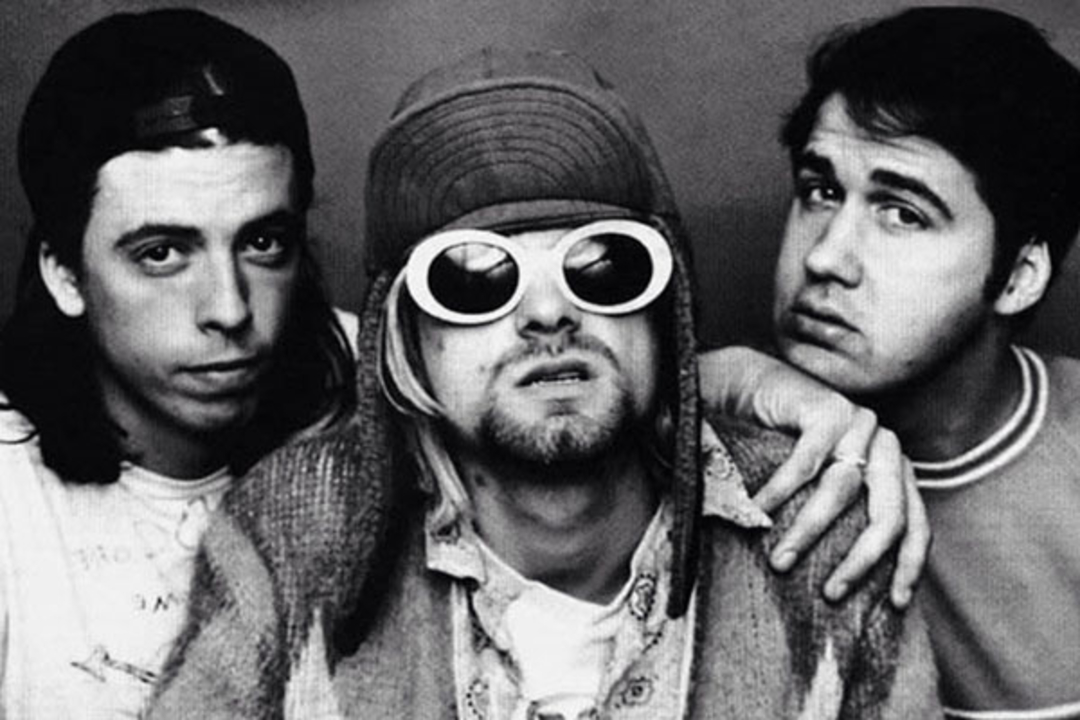

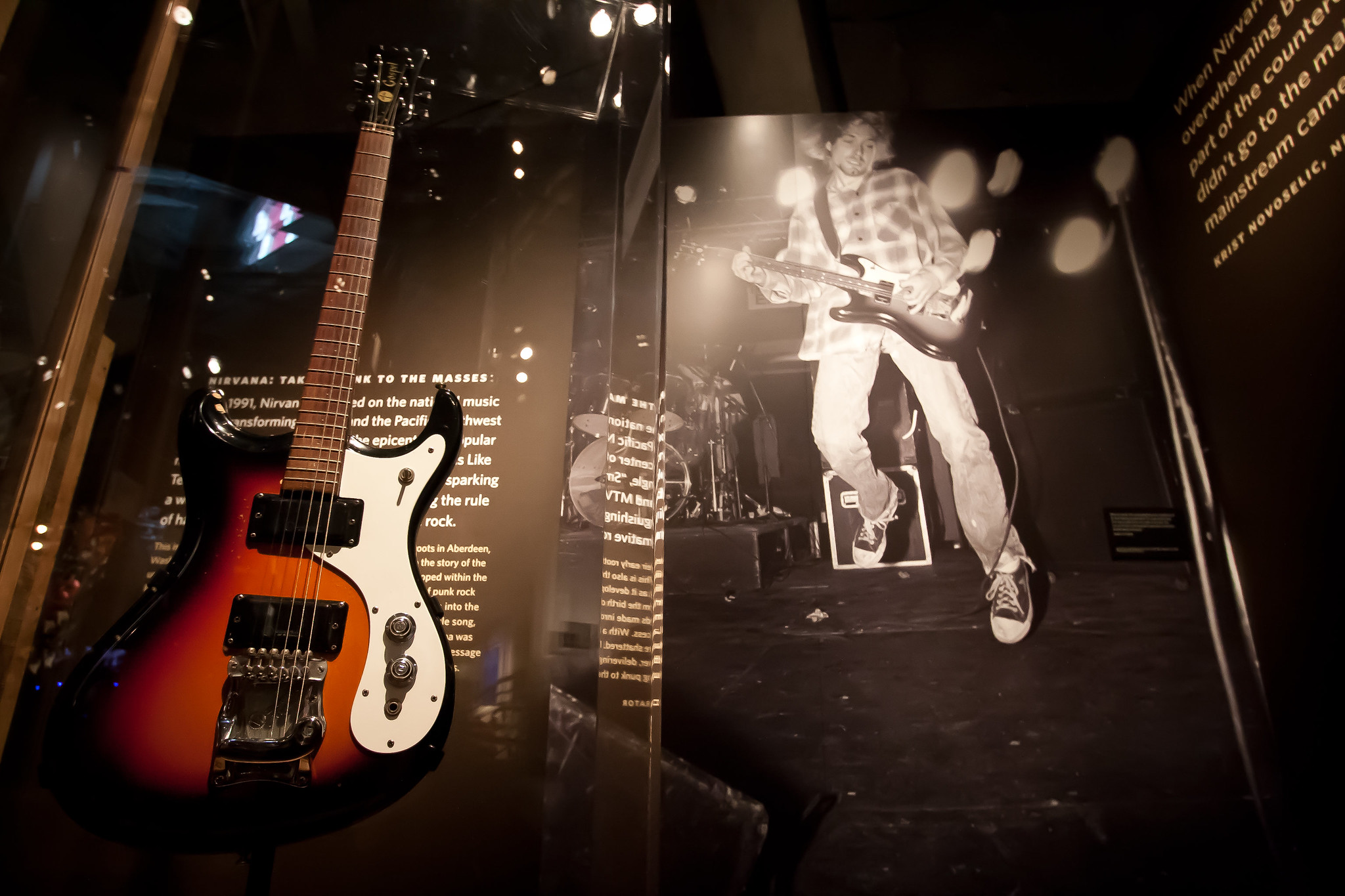

One Comment
Pingback: